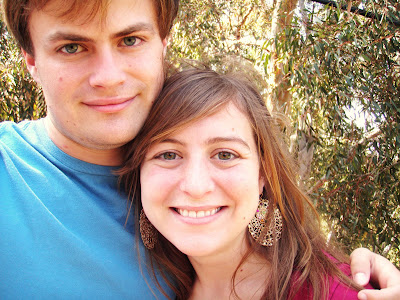
This is the first major work by MacIntyre that I mentioned in the Canticle post and the second assigned reading in the class I'm sitting in on right now. I'd read portions of After Virtue a couple of semesters ago and I even used it in a term paper or two, but it was helpful to sit and read it straight through. MacIntyre is a joy to read in part because his prose moves the reader forward with the authority of someone who knows what he is doing, but mostly because the things that he says make deep-down, core-level sense.
On why politics are so aggressive and national issues so irreconcilable:
"It is precisely because there is in our society no established way of deciding between these claims that moral argument appears to be necessarily interminable. From our rival conclusions we can argue back to our rival premises; but when we do arrive at our premises argument ceases and the invocation of one premise against another becomes a matter of pure assertion and counter-assertion. Hence perhaps the slightly shrill tone of so much moral debate" (8).
On the fundamental incoherence of the modern conception of individualism:
"Contemporary moral experience as a consequence has a paradoxical character. For each of us is taught to see himself or herself as an autonomous moral agent; but each of us also becomes engaged by modes of practice, aesthetic or bureaucratic, which involve us in manipulative relationships with others. Seeking to protect the autonomy that we have learned to prize, we aspire ourselves not to be manipulated by others; seeking to incarnate our own principles, and stand-point in the world of practice, we find no way open to us to do so except by directing towards others those very manipulative modes of relationship which each of us aspires to resist in our own case. The incoherence of our attitudes and our experience arises from the incoherent conceptual scheme which we have inherited" (68).
On the existence of human rights without a moral context:
"[T]here are no such rights, and belief in them is one with belief in witches and in unicorns. . . . [T]here are no self-evident truths. Twentieth-century moral philosophers have sometimes appealed to their and our intuitions; but one of the things that we ought to have learned from the history of moral philosophy is that the introduction of the word 'intuition' by a moral philosopher is always a signal that something has gone badly wrong with an argument" (69).
On what happens when most people try to understand themselves in relation to the world:
"When those immersed in the bureaucratic culture of the age try to think their way through to the moral foundations of what they are and what they do, they will discover suppressed Nietzschean premises" (114).
On the ability of narrative to allow us to create a coherent understanding of the world:
"[I]n determining what causal efficacy the agent's intentions had in one or more directions, and how his short-term intentions succeeded or failed to be constitutive of long-term intentions, we ourselves write a further part of these histories. Narrative history of a certain kind turns out to be the basic and essential genre for the characterization of human action" (208).




















